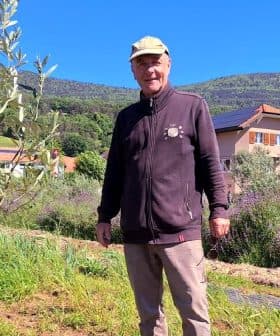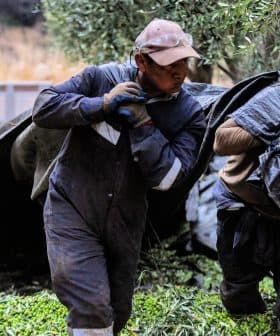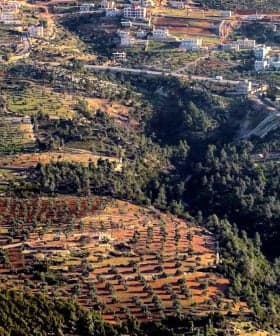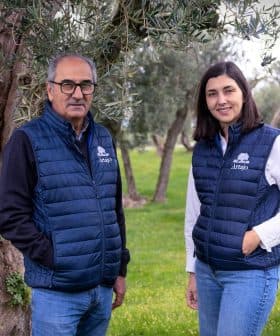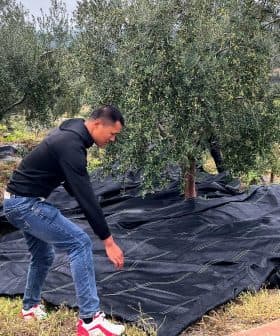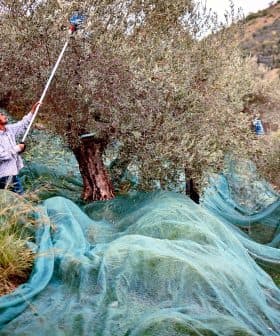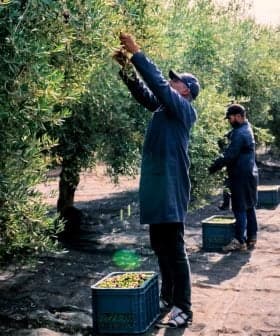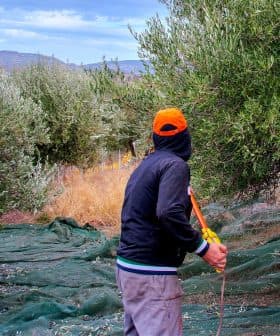Canada's First Olive Farm Weathers Difficult Winter
A year after their first successful harvest made headlines, Sheri and George Braun were left unable to fill any of their orders. Still, the couple said the project’s uncertainty is part of what makes it worth doing.
 Sheri and George Braun (courtesy Boulevard Magazine)
Sheri and George Braun (courtesy Boulevard Magazine)Despite initial skepticism, George and Sheri Braun successfully produced the first Canadian olive oil on Salt Spring Island, British Columbia, but faced setbacks due to harsh winter weather. The couple remains dedicated to their passion project, aiming to increase production and establish a reliable annual harvest despite the challenges of farming olives in a non-traditional climate.
“Everyone we talked to either hung up the phone, or laughed and said ‘you can’t do it there,’” said George Braun, recalling his passion project’s rocky beginning.
He and his partner Sheri Braun were undeterred, and five years after they imported the first seedlings from California, they accomplished exactly the dream that few thought was possible. In 2016, their grove on Salt Spring Island, British Columbia yielded the first Canadian olive oil — 32 liters of it, which sold out quickly.
You have to take a chance, you have to take a risk. It literally has gone from a fun idea to our life.
But trouble was on the horizon. The winter following the landmark November harvest was the coldest the island had seen in 30 years and forced heavy pruning of the trees. Then, as the fall 2017 harvest neared, a devastating early October frost froze the olives right to the branches.
“It snowed, then it froze very hard for about four to five days,” George recalled. “Then the weather picked up again. But the damage was done, and we just couldn’t get any fruit off that was worth knowing.”
A year after their first successful harvest made headlines, they were left unable to fill any of their orders.
The Brauns were prepared for the fact that their northern location would mean early frost some years, but Sheri said they weren’t expecting it to be a factor so early in the farm’s life.
Still, the couple said the project’s uncertainty is part of what makes it worth doing.
“I feel so many times in our world everybody analyses every project to death and if it doesn’t come in at around a 70- or 80 percent chance of success, then they’re not going to do it,” said George. “In our analysis, it was probably less than 40 percent.”
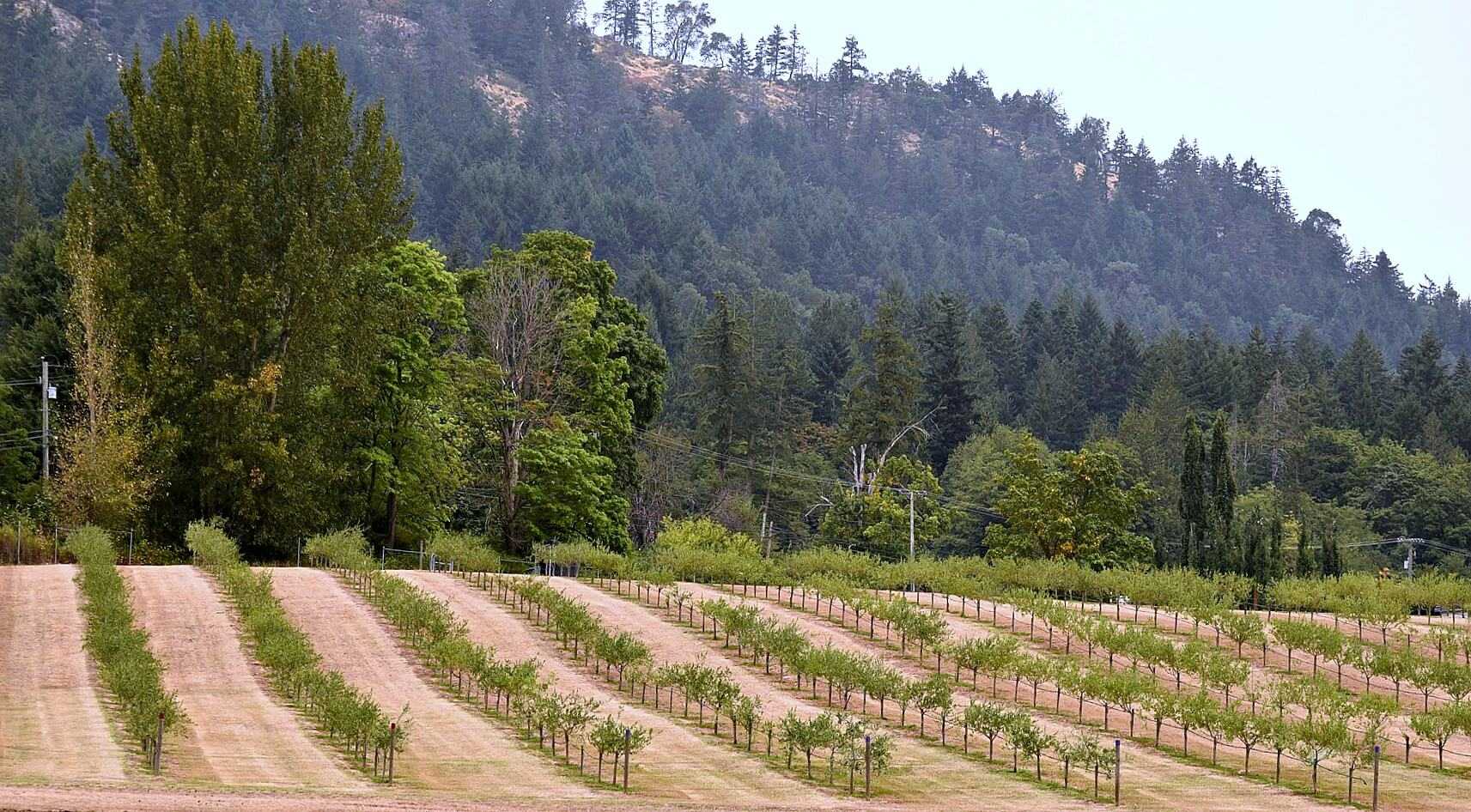
Boulevard Magazine
“So we were willing to try it anyway because that’s what happens when you pioneer a new industry,” Sheri added. “You have to take a chance, you have to take a risk.”

Salt Spring Island, BC, Canada
It was a trip to Spain where Sheri and George fell in love with olive groves that lead them to search for a place in Canada they could start their own. They landed on Salt Spring Island.
Situated between Vancouver Island and the B.C. mainland, Salt Spring is known for its warm summers and mild winters. Some have called the climate “Mediterranean,” although Sheri admitted that’s “a bit of an exaggeration.”
She said they had no idea when they started just how much work their olive farm would be.
“This project has been way bigger, wider, broader — more on every spoke than we ever envisioned. It literally has gone from a fun idea to our life,” she said.
For the moment, the Brauns are focused on this year’s fast-approaching harvest. With good weather in the forecast, they’re hoping they can hold off until the second or third week of November, giving the olives more time to ripen. Every week counts, as the growing season on Salt Spring Island is significantly shorter than in areas where olives are traditionally grown, like Spain or Italy.
Long-term goals for the farm include increasing production to meet the demand of their long list of interested potential customers.
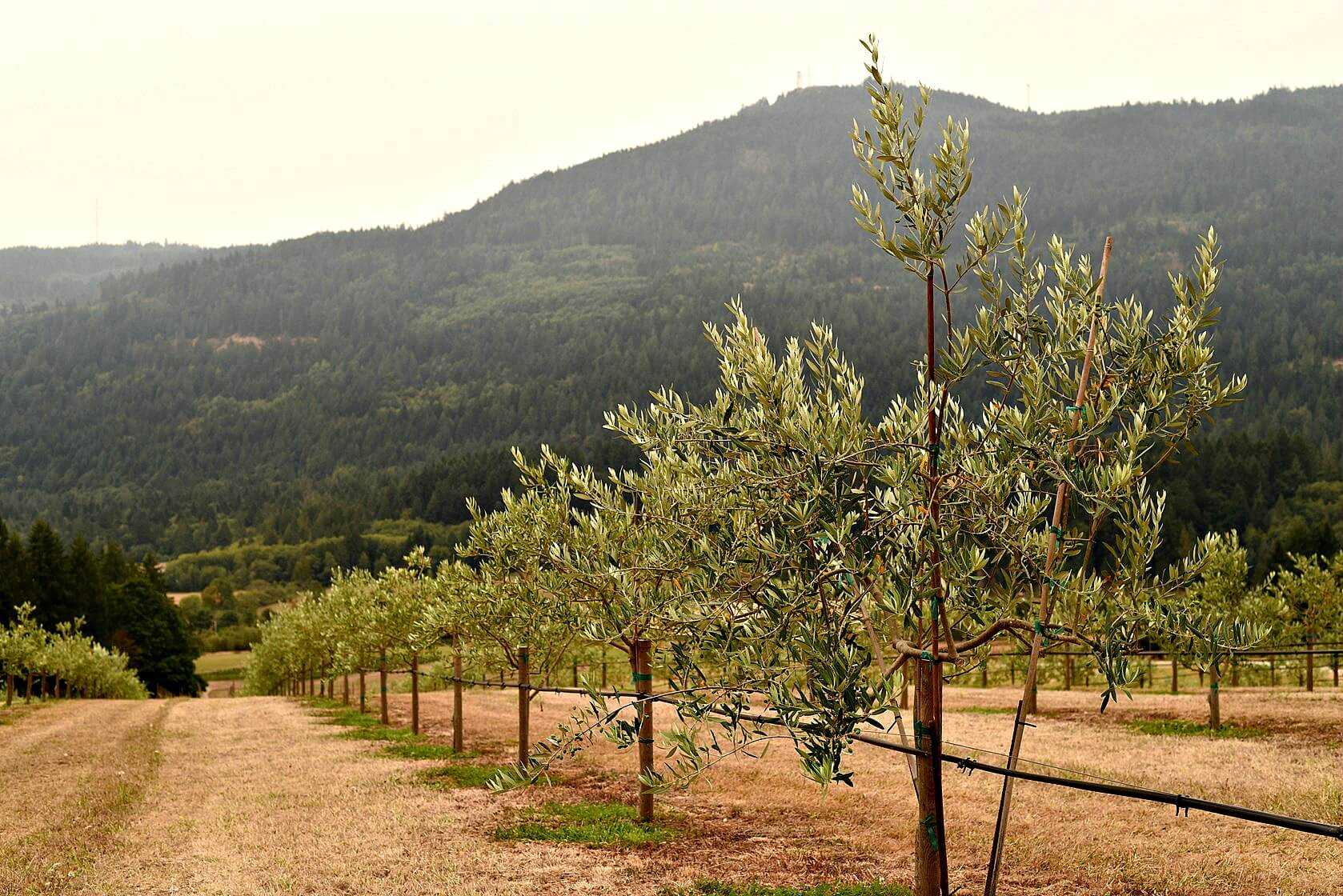
Boulevard Magazine
“I think we’ve kind of established that we can grow trees in our part of the world. The olive tree itself now seems to be thriving,” said George. “Now the next success benchmark would be if we could get an annual harvest, at least nine out of every ten years would be nice. And of course get our volume up, that would be kind of a third level.”
The couple said it’s the encouraging emails they receive from around the world and the excitement of doing something completely new that make high-risk Canadian olive farming worth it.
“Even if we’re somewhat successful with it, what a huge reward it would be just to have been able to do this in a climate like ours,” said George.
“To try something brand new and take the chance is worth it,” Sheri said. “It’s exciting. The growth itself and the property are beautiful. It’s an adventure, basically.”


